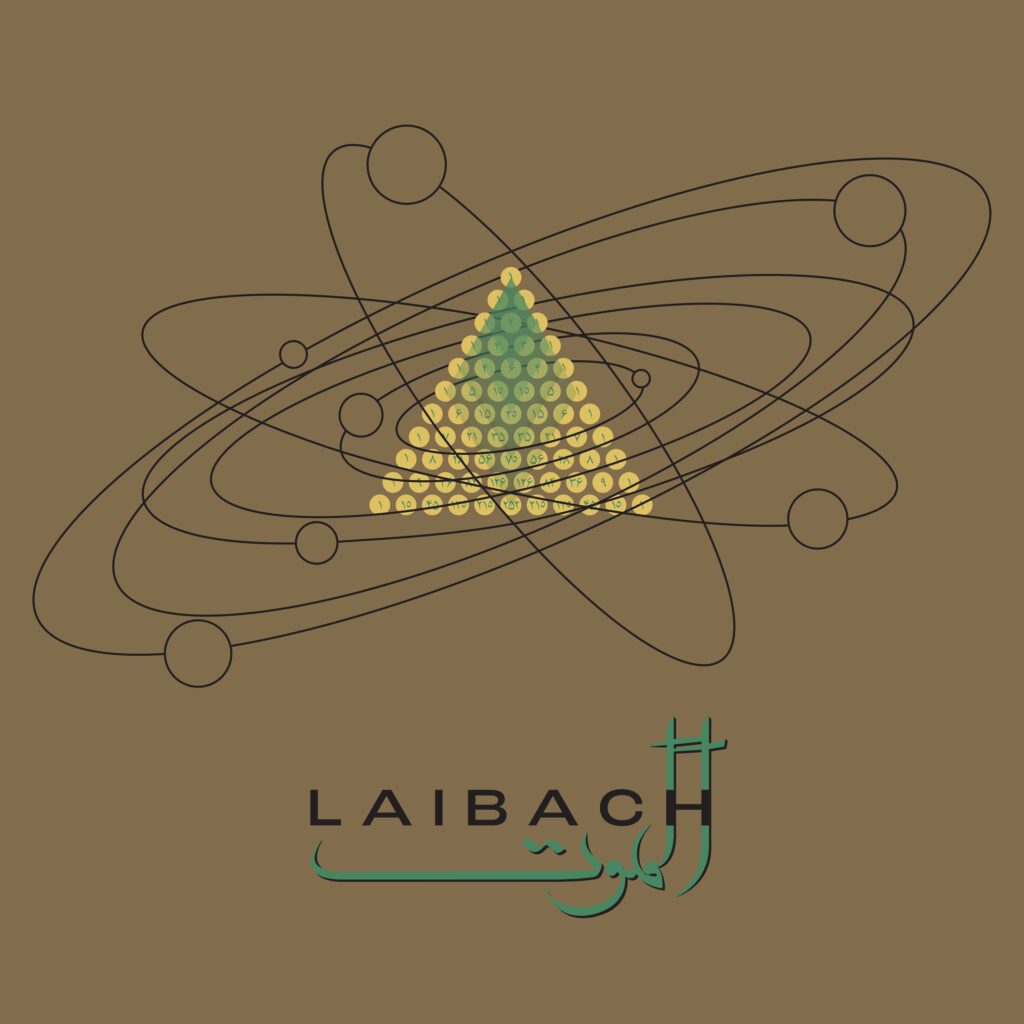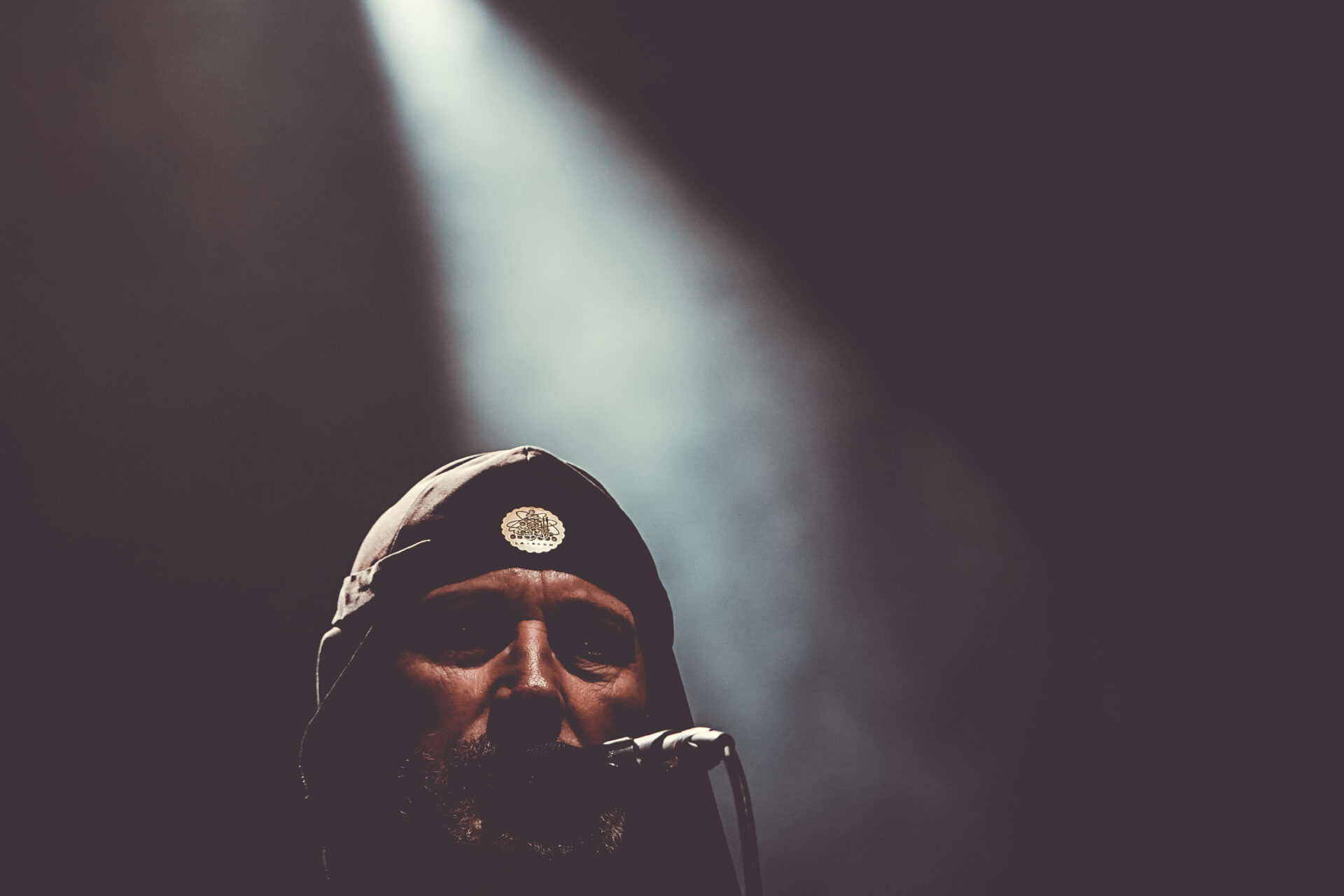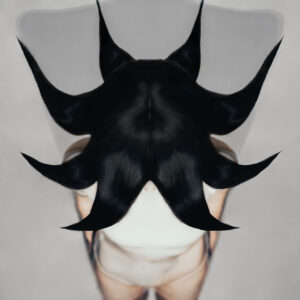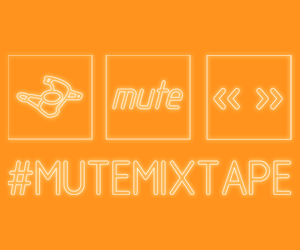“Great art in reaction to troubling events is nothing new in the Laibach canon either, though Alamut is almost certainly the most jaw-dropping work they’ve been involved in across a 45-year career and counting.”
The Quietus Album of the Week
Laibach have today released a new symphonic work, Alamut, composed in in collaboration with Iranian composers Idin Samimi Mofakham, and Nima A. Rowshan and presented in partnership with A/POLITICAL. The album is out on double vinyl, double CD box set (both with extensive sleeve notes) and digitally via Mute.
Watch / listen to the final movement, ‘Meditation II & Epilogue’:
Alamut takes inspiration from the 1938 book of the same name, a retelling of a story from eleventh century Persia by Slovenian writer Vladimir Bartol. The book, about martyrdom and the Cult of Personalities, went on to inspire the video game series Assassin’s Creed, as well as artists such as Umberto Eco, Hawkwind and William S. Burroughs (who referenced the work in Naked Lunch, Nova Express, and The Red Night Trilogy).
The book’s central character is Hassan-i Sabbāh, the charismatic religious and political leader of the Nizari Ismailis who founded the mysterious military formation known as the Hashshashin, or Order of the Assassins. Hassan-i Sabbāh was a self-proclaimed prophet who led a holy war against the Seljuk Empire from his eyrie – the castle of Alamut. Bartol’s novel – known for its maxim “Nothing is true, everything is permitted” – examines the mechanisms of propaganda at a time when their author was witnessing, first hand, the rise of Fascism in Trieste (Italy).
In Laibach’s retelling of Alamut, these ideas of radical nihilism are interwoven with the classical Persian poetry of Omar Khayyam, while the sensual verses of Mahsati Ganjavi blend with minimalist orchestral colours derived from the Iranian tradition. Hassan-i Sabbāh’s propaganda mechanisms echo in the industrial principle of the workings of the orchestra and Laibach’s unique sound.
The album was recorded at the concert in Križanke Outdoor Theatre, Monastery of the Holy Cross, Ljubljana, by Laibach and the RTV Slovenia Symphony Orchestra, conducted by the Iranian conductor Navid Gohari. Laibach’s firm belief is that “cultural and political differences in these complex times must be overcome through a profoundly open cooperation, against all odds”. The production was expected to premiere in in Tehran, but the current political climate has so far prohibited this. Instead, they invited the Human-Voice Ensemble vocal group from Tehran, who worked alongside two Slovenian ensembles: the Gallina Vocal Group, and AccordiOna, a 60-piece accordion orchestra.
Alamut was composed by Luka Jamnik (Laibach), Idin Samimi Mofakham, and Nima A. Rowshan.
Laibach’s Alamut related exhibition at the Cukrarna Gallery, Ljubljana continues until 18 May. The UNTERNEHMEN BARBAROSSA project intertwines themes and visuals from Nikolaj Pirnat’s partisan graphics with reference to Picasso’s Guernica, and the story of an Afghan family from Kabul who wove a carpet based on a sketch provided by the group. More details HERE.

Laibach Alamut tracklisting
- Overture
- Secret Gardens
- Fedayeen
- Transition
- Meditation I
- War
- Doors of Perception
- Metaverse
- Meditation II & Epilogue
Laibach continue their Opus Dei Revisited tour – which feature their recent interpretation of Foreigner’s ‘I Want To Know What Love Is’ – with a series of dates.
LAIBACH – 2025
- 9 May – Ljubljana, Cukrarna, SI [tickets] – We Forge the Future [SOLD OUT]
- 11 July – Kranj, Letno gledališče Khislstein, SI [tickets] – Opus Dei Tour
- 19 July – Friedrichshafen, VOD-Festival, DE [SOLD OUT] – industrial program
- 25 July – Niš, Dvorište univerziteta u Nišu, RS [tickets] – Opus Dei Tour22 Aug – Ruše, Letno gledališče Pod goroj, SI [tickets] – Festival program
For latest details: https://www.laibach.org/future-events/







